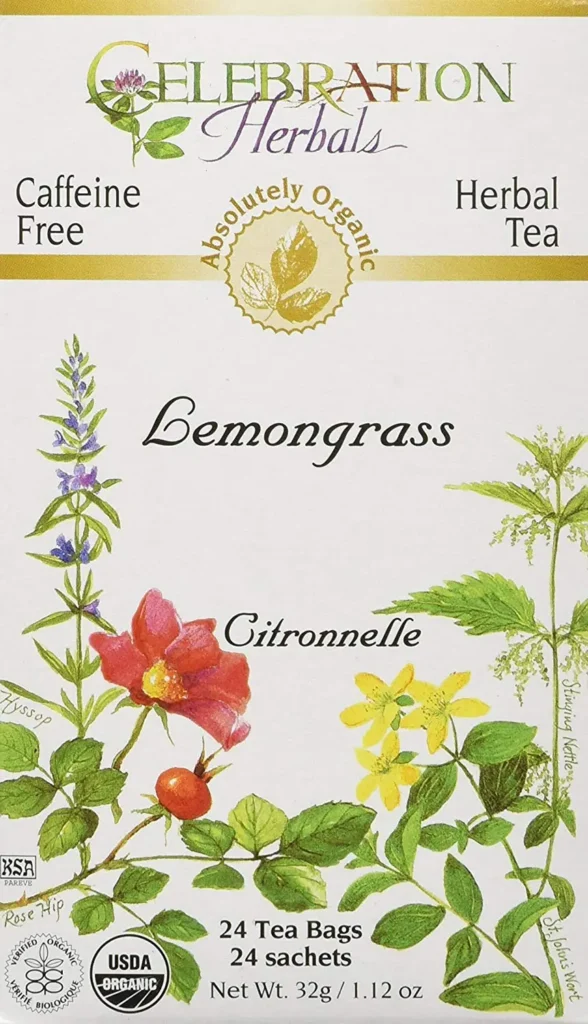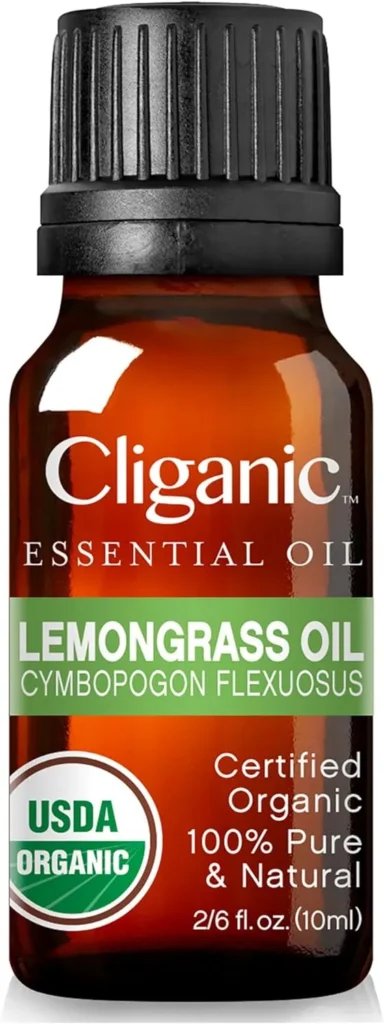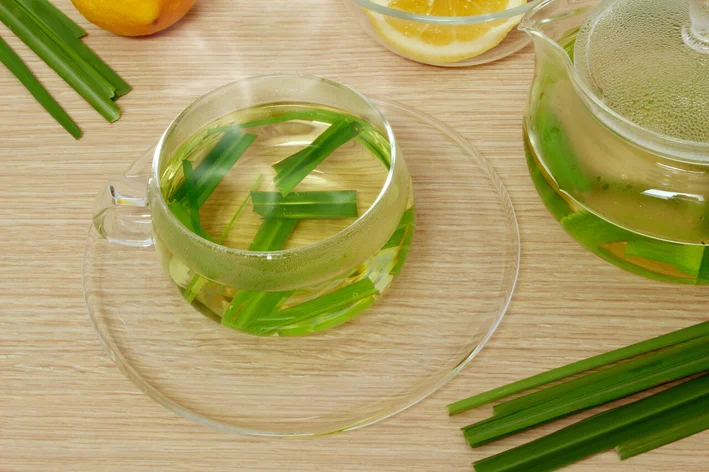Lemongrass tea, known for its distinctive citrus aroma and versatility, is used extensively both in culinary and medicinal contexts. This blog post dives into frequently asked questions about lemongrass, uncovering its benefits, safety, and best uses based on common inquiries.
What is lemongrass and how is it used?
Lemongrass is a plant whose leaves and oil are utilized in making medicine. It is employed in treating a myriad of conditions such as digestive tract spasms, high blood pressure, pain, and exhaustion.
It’s also a natural germicide and a mild astringent. Whether infused in tea, applied topically as an essential oil, or used as a flavor enhancer in foods, lemongrass boasts a variety of applications.
What are the top benefits of lemongrass?
Lemongrass offers numerous health benefits including anti-cancer properties, aiding in diabetes management, treating anemia, alleviating colds and bloating, lowering bad cholesterol, strengthening the nervous system, and treating skin diseases. It also lowers blood pressure and helps in removing toxins from the body.
- Anti-Cancer Properties: Lemongrass can induce apoptosis in cancer cells, offering potential anti-cancer benefits.
- Diabetes Management: It aids in stabilizing blood sugar levels, making it beneficial for diabetes management.
- Treating Anemia: Enhances the body’s ability to absorb iron, helping to treat anemia.
- Relieves Colds and Bloating: Provides relief from respiratory discomfort and digestive issues like bloating.
- Detoxification: Facilitates the removal of toxins from the body, supporting overall detox processes.
- Lowers Bad Cholesterol: Contributes to cardiovascular health by lowering bad cholesterol levels.
- Strengthens the Nervous System: Improves brain function and increases resilience against stress.
- Skin Health: Has anti-inflammatory and antibacterial properties that are effective in treating skin diseases and infections.
- Lowers Blood Pressure: Helps maintain a healthy heart by reducing high blood pressure.
- Improves Sleep and Reduces Anxiety: Offers calming and sedative effects that enhance sleep quality and reduce anxiety.

Lemongrass Tea Organic 24 Bag, 32Gm. View this product on Amazon
What are the medicinal benefits of lemongrass?
Medicinally, lemongrass serves as an antispasmodic, hypotensive, anticonvulsant, and analgesic. It is reputed to aid in treating nervous and gastrointestinal disorders, fevers, and various rheumatic conditions.
Its antiseptic properties make it effective in combating infections, which are bolstered by its antimicrobial and antifungal activities.
Is it safe to drink lemongrass every day?
While lemongrass can be consumed safely, it should be used in moderation. Daily consumption in excessive amounts may lead to potential side effects such as dry mouth, dizziness, and allergic reactions.
Consulting with a healthcare provider before starting any regular herbal regimen is advised to ensure it complements your health without adverse effects.
Can lemongrass cure an infection?
Lemongrass is effective against various kinds of infections due to its anti-fungal and antimicrobial actions. It has shown promising results in treating dermatological infections, yeast infections, and other pathogen-caused ailments due to its healing effects.

Organic Lemongrass Essential Oil – 100% Pure Natural. View this product on Amazon
Is Lemongrass good for the kidneys and liver?
Yes, lemongrass can benefit both the kidneys and the liver. It helps in detoxifying these organs by flushing out toxins and is also known for its antioxidant properties which may prevent cellular dysfunction within the coronary arteries.
Is lemongrass considered a superfood?
Indeed, lemongrass can be classified as a superfood due to its rich content of flavonoids and phenolic compounds, which include potent antioxidants. It also possesses anti-inflammatory and antibacterial properties that contribute to its superfood status.
Can lemongrass reduce belly fat?
Lemongrass includes diuretic properties that promote the elimination of accumulated fluid, helping to reduce abdominal bloating. This makes it a useful addition to weight loss diets, although it should be used as part of a balanced approach to diet and exercise.
Does lemongrass tea affect blood pressure?
Drinking lemongrass tea has been associated with reducing high systolic blood pressure. Studies have indicated that it can lead to a moderate drop in systolic blood pressure and help in maintaining a healthier heart rate.
Is lemongrass good for arthritis?
Lemongrass essential oil is beneficial for reducing symptoms of rheumatoid arthritis thanks to its anti-inflammatory properties. It helps in easing pain and improving mobility in affected joints.

Tea Forte Ginger Lemongrass Herbal Tea Event Box, Bulk Pack of 40 Pyramid Infuser Tea Sachets. View this product on Amazon
Is lemongrass good for hair and lungs?
Lemongrass is beneficial for both hair and lung health. It acts as a natural remedy for dandruff and improves hair texture and shine, thanks to its antifungal properties. For the lungs, lemongrass works as an effective expectorant, clearing excess mucus and phlegm and aiding in conditions like chronic asthma.
Which is better: green tea or lemongrass tea?
While green tea is known for its antioxidant properties and health benefits such as enhanced metabolism and heart health, lemongrass tea is valued for its digestive benefits and refreshing flavor. The choice between them depends on personal health goals and taste preferences.
Does lemongrass tea make you sleepy?
Lemongrass tea is an excellent sleep aid as it induces the release of serotonin, a hormone that improves mood and relaxation. Drinking it can reduce stress and anxiety, making it a perfect choice for a nighttime beverage to improve sleep quality.
Is lemongrass tea good to drink at night?
Yes, lemongrass tea is ideal for nighttime consumption as it has a calming effect on the body, reducing stress and promoting relaxation, which can significantly enhance sleep quality.
It may interest you too: Top 10 teas for better sleep: unlock nature’s secret
References:
Avoseh, O., Oyedeji, O., Rungqu, P., Nkeh-Chungag, B., & Oyedeji, A. (2015). Cymbopogon Species; Ethnopharmacology, Phytochemistry and the Pharmacological Importance. Molecules, 20, 7438 – 7453. https://doi.org/10.3390/molecules20057438.1
Ekpenyong, C., Akpan, E., & Nyoh, A. (2015). Ethnopharmacology, phytochemistry, and biological activities of Cymbopogon citratus (DC.) Stapf extracts.. Chinese journal of natural medicines, 13 5, 321-37 . https://doi.org/10.1016/S1875-5364(15)30023-6.
Oladeji, O., Adelowo, F., Ayodele, D., & Odelade, K. (2019). Phytochemistry and pharmacological activities of Cymbopogon citratus: A review. Scientific African. https://doi.org/10.1016/j.sciaf.2019.e00137.
